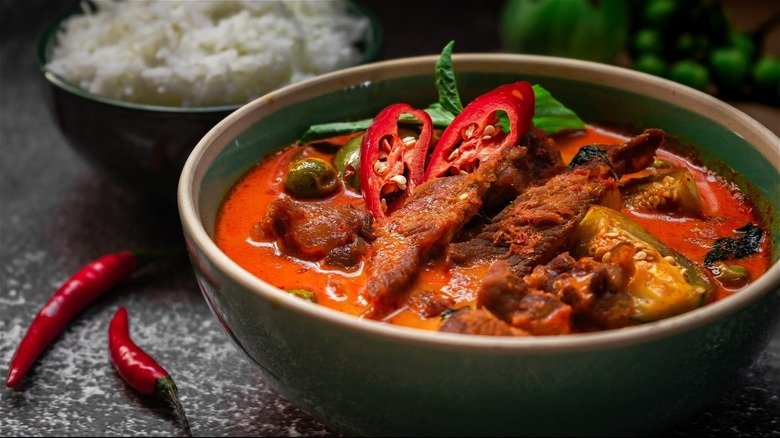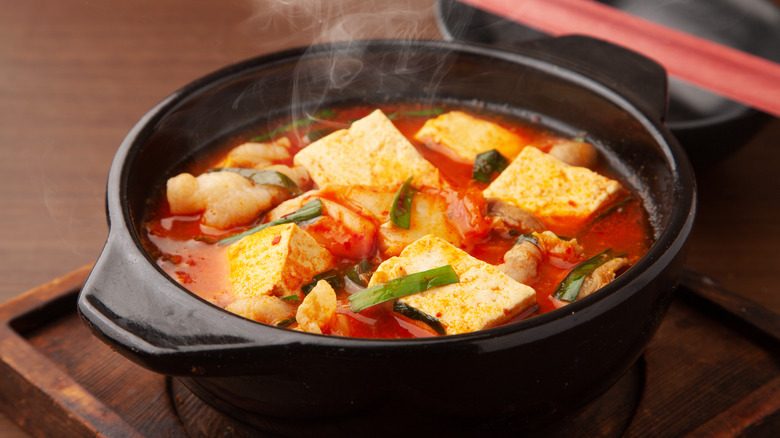The Easy Way To Fix Almost Any Extremely Spicy Dish
Spices, herbs, and seasonings form a crucial element of so many dishes. Sure, high-quality ingredients and flawless technique count for a lot, but ultimately without proper seasoning, a dish will typically fall flat. It'll just taste bland and unremarkable. In some cases, proper seasoning might just mean a generous pinch or two of salt. In others, though, it's a careful layering of different flavors that all bring a little something different to the dish. Seasoning is absolutely critical, as MSGDish explains, and you definitely don't want to overlook the spices and seasonings in a recipe you're making.
Anyone who likes things on the spicier end of the spectrum will know the benefits of adding a little heat to whatever you're cooking up in the kitchen. From fresh chili peppers to dried chili flakes to spices like cayenne to sauces (and even hotter fresh pepper options), there are endless choices for incorporating both heat and flavor into your meal. There's one thing that's important to remember, particularly when you're infusing some heat into what you're making — you can always add more seasoning, but it's a lot harder to take it away.
Basically, you don't want to under-season your food, but at the same time, adding too much of a particular spice could cause your dish to become inedible. Luckily, there are ways to help rescue a dish that's been overseasoned — and a particularly easy one can be applied to situations where you've added way too much heat.
How to tame your spicy dish
Even though some individuals have a much higher spice tolerance, avoid the temptation to choke down a dish that's way too spicy. It's not just a matter of taste — as Scientific American reports, overly spicy food actually targets the same receptors in your body that respond to heat. That means your brain gets the signal that it should send a burning sensation, which is why you often feel the heat through your entire body, not just your mouth. That's where this simple trick comes in.
There's a very easy and effective way to tone down a dish that has accidentally become a bit too spicy, and better yet, it doesn't require any additional ingredients. As EatingWell outlines, you simply need to dilute whatever you're making. This obviously works best in dishes like soups and stews, as you can add in more water or broth without altering the dish too much. However, in other dishes, you might opt to dilute the spice level by adding more of certain other ingredients, such as packing in a few extra servings of unseasoned vegetables or rice in a stir fry or jambalaya.
Ultimately, it does depend on just how heavy-handed you were with the spicy ingredients in your dish. As Pepper Scale explains, if you have to add in huge quantities of other ingredients to dilute it, it may be more cost-effective to simply start over.

